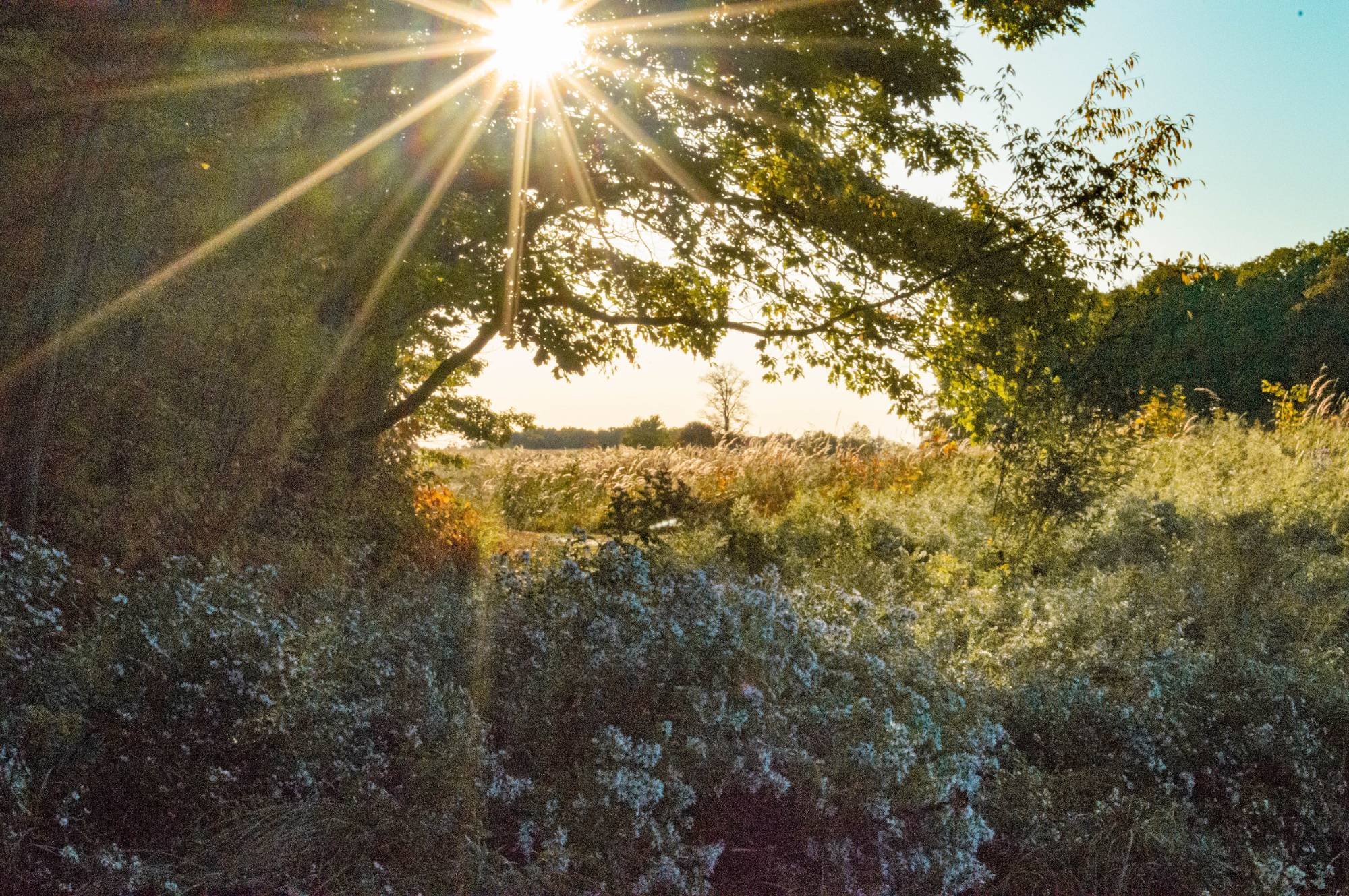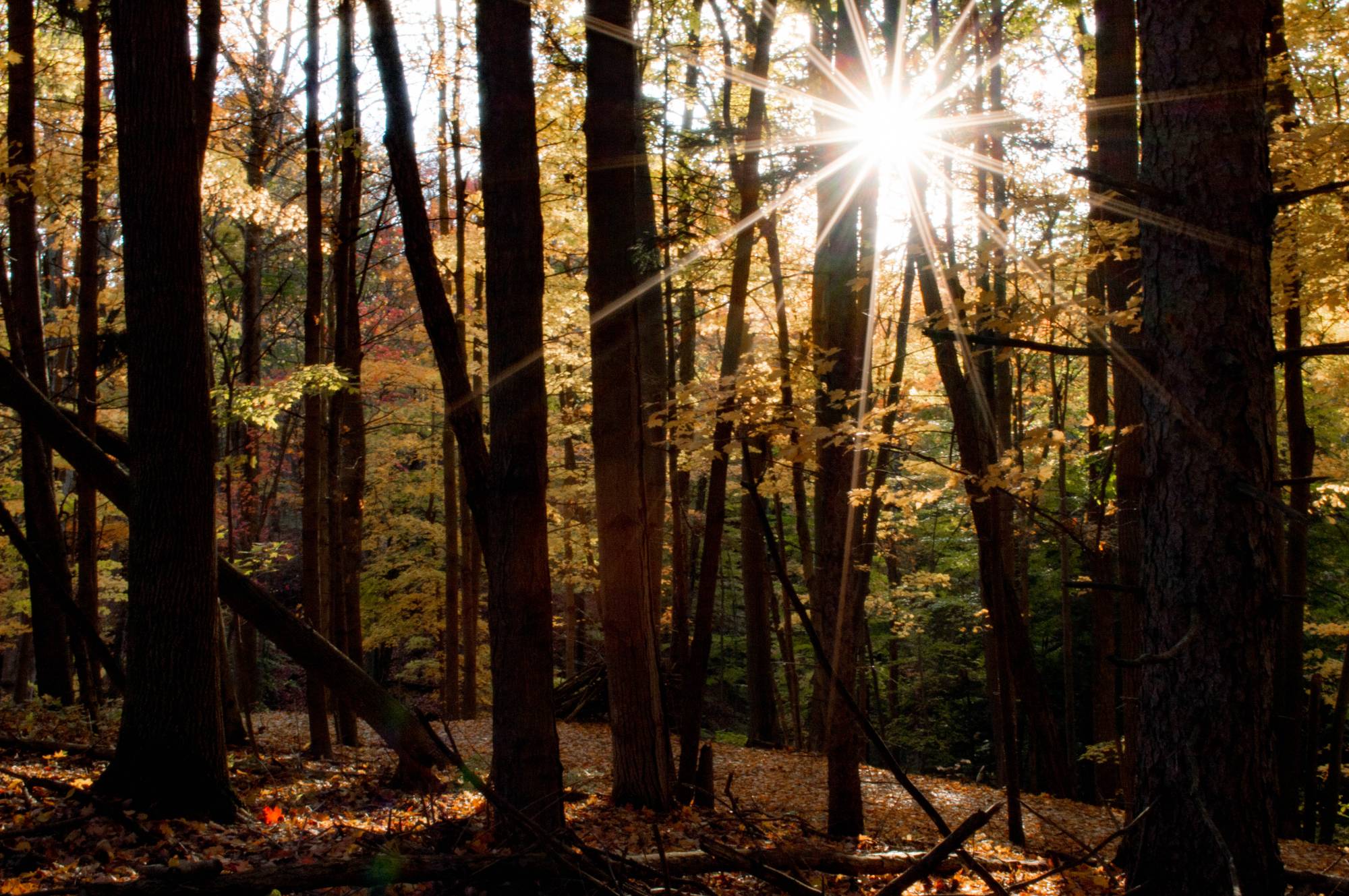Blog
Permanent link for A Sunny State of Mind on November 23, 2020
The time change can be disorienting. It happens every year, but I’m still shocked that it’s already dark at 5 PM. Besides thinking it’s 9 PM at 6 PM, many people may begin to feel unmotivated, tired, or sad during this time. This is because as we approach winter, we experience less and less sunlight. By the time we reach the Winter Solstice (December 21) those of us in Michigan are getting less than 9 hours of daylight, which is 6 hours less than in June! Plus, winter usually means more cloudy days, which unfortunately gives us even less of a chance to see the sun. This change has many effects on our mental state.
How Less Sunlight Affects Us
Reduced sunlight disrupts our circadian rhythm. Our circadian
rhythm is like a biological clock that tells us when our bodies should
feel alert or sleepy. A disruption may leave you low on energy during
the day. This can also change the levels of a sleep hormone called
melatonin, making it harder for you to fall and stay asleep. Reduced
sunlight can also cause a drop in serotonin levels, a brain chemical
that affects our mood.
Common Effects of Less Sunlight
During the fall and winter months, you may find yourself
oversleeping or struggling to stay alert during the day. I personally
have to stop myself from taking multiple naps; my bed just looks so
welcoming! Aside from that, you also may become more short tempered or
anxious than usual. Many also experience a change in appetite or weight.
In more intense cases, this is referred to as Seasonal Affective Disorder (SAD) or seasonal depression. In fact, those with preexisting conditions, such as depression or anxiety, are often more susceptible to the effects from a lack of sunlight. SAD is characterized by heightened, constant, and long-lasting symptoms that often worsen as the season progresses. The GVSU University Counseling Center is open to all students and FREE. Aside from RecWell, they are another great resource if you’re looking to improve your emotional well-being!
How Can I Reduce the Effects?
Get outside and stay
active! Time spent outside is proven to calm the mind and improve
self-confidence/clarity. Exercise, whether that’s a short walk around
the block or following an intense workout video, is also proven to
boost mood and overall well-being, as well as improve appetite and
sleep cycles. Any amount is beneficial, but consistency is key, so set
time aside each day for you to focus on your well-being. Seriously, it
could be as short as a 5
minute stretch!
Light therapy is another popular treatment option. A light therapy box mimics sunlight, “tricking” your brain! Many feel great improvements in alertness and mood by sitting in front of one for just 30 minutes a day. Our very own WIT Advisor and RecWell Student Health Promotions Coordinator, Katie, uses one in the winter months to help when she's feeling down or lacking energy. She says it gives her that little extra bit to keep going during dark, winter days.
It’s important to understand that it’s common to feel a change in your well-being with the change of seasons. Remember, you’re not alone and there are many GVSU resources that can help! Check out student wellness information from RecWell, look into the University Counseling Center, or reach out to your friends. And remember, spring is right around the corner!
By: WIT Peer Educator, Stella Sterling
Categories:
General Wellness
Posted
on
Permanent link for A Sunny State of Mind on November 23, 2020.


